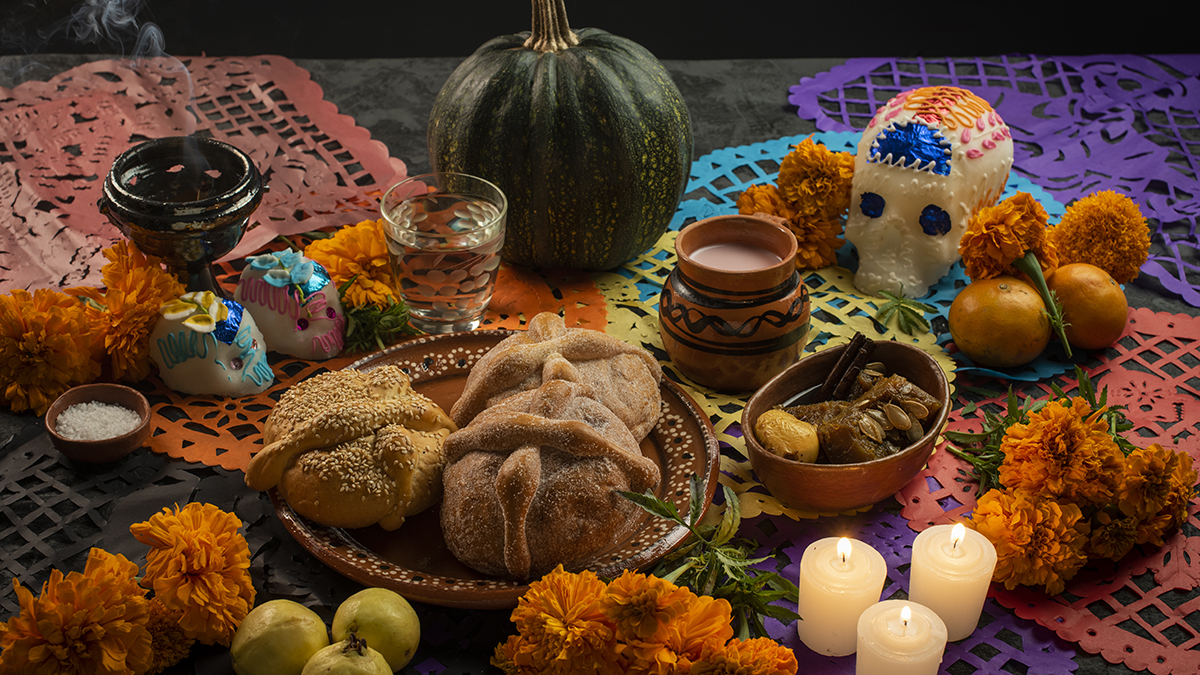Sometimes, it’s really hard to know how best to support and comfort someone who has experienced a loss, endured heartache, or is going through a hard time. We don’t want to make the situation worse or upset that person further. The nagging fear that we might say the wrong thing often leads us to do nothing. However, according to Brooke James, creator of the podcast The Grief Coach, even the smallest gesture can have profound benefits for someone in need.
Finding the right words
James, a grief educator, saw her own friends struggle with how to be there for her when she lost her father to cancer in 2019. That experience led her to look for better ways to show support.
Today, she consults for national brands, helping them create more empathetic and supportive work environments. Her advice is to always err on the side of showing as much support as you can. “The person who is going through something already feels isolated, so when people leave them alone, thinking that’s best for them, it’s actually the worst feeling.”

If you’re not sure what to say, the best thing to do is ask, James says. “Rather than an overly emotional ‘I’m so sorry’ or ‘How are you?’ which are well-intentioned but don’t really help the receiver feel any better, there are words that can be more comforting. Saying something like ‘I don’t know what to say. I know nothing I say will change this, but I’m here for you,’ that’s perfect.”
People need encouragement for a lot of reasons, both big and small. For James, helping people be heard is an essential part of the healing process. “Right after my dad died, friends would start complaining about something in their life, and then they’d feel apologetic, like, ‘I’m sorry, this is nothing compared to what you’re going through.’ You can still be having a hard time with something even though your dad didn’t die.”
During a time like the COVID-19 pandemic, when many people were grieving things they lost or missed out on, validation is particularly relevant, James says. “Sharing in these types of conversations gives someone who’s struggling permission to be vulnerable. It’s through that process that they can move on to healing.”
When words aren’t enough
After offering words of encouragement, James advises taking action to show how much you care. This can have an exponentially greater impact, becoming a memory that comforts for years to come.
Here are six easy ways to show you care.
1. Focus on specifics
“Rather than say ‘Let me know if I can do anything to help,’ make concrete suggestions that you think the person could use.” Offering to do any number of helpful chores —laundry, house cleaning, babysitting — is a way to lighten their load, James says.
2. Set a weekly walk date
Getting outside and enjoying the fresh air with someone else — even for as little as 15 minutes — can become an immeasurable source of hope and comfort, James says.
3. Remind someone how special they are

Imagine how good a loved one will feel when they receive a delivery of flowers, food, or a beautiful keepsake (or a combination of two of them!). A heartfelt gift is a great way of letting someone know they’re in your thoughts.
4. Continue the support long term
People can be overwhelmed with support during a difficult period, James says, but their phones have a tendency to go silent a few weeks later. It’s at those times when sending a thoughtful reminder, such as a “Sending Hugs” sweets gift box or Smiling Blooms bouquet, can mean the most.
5. Offer a distraction
Although your loved one might not take you up on it, offering to take their mind off what they’re going through rather than having a serious heart-to-heart conversation can be a refreshing change, James says. “Sometimes you just want to talk about the normal things that you and your friends used to talk about.”
6. Be mindful of milestones
James says the lead-up to anniversaries of difficult times can be especially challenging. “You could send something and say, ‘I know this is a hard week coming up, so I thought you might want some pretty flowers to look at.”
Honest communication and thoughtful actions can take the guesswork out of helping someone through a hard time. When a loved one is in need of encouragement, the best advice is always, when in doubt, do something.
19 quotes for encouragement
Did you know positive words of encouragement can actually have a positive effect on how the brain works? Research shows thoughtful phrases build resilience and motivation.
If you’re looking for the right words to send to someone in need of encouragement but are coming up empty, try using a famous quote that feels right for the situation. Here are a few to help you get started.
Learn from adversity
- “I’ve missed more than 9,000 shots in my career. I’ve lost almost 300 games. 26 times I’ve been trusted to take the game winning shot and missed. I’ve failed over and over and over again in my life. And that’s why I succeed.” — Michael Jordan
- “It’s not about how hard you can hit; it’s about how hard you can get hit and keep moving forward.” — Rocky Balboa, Rocky
- “Everything negative — pressure, challenges — is all an opportunity for me to rise.” — Kobe Bryant
- “If I got rid of my demons, I’d lose my angels.” — Tennessee Williams
- “Your past does not equal your future.” — Tony Robbins
Keep moving forward
- “Learn from yesterday, live for today, hope for tomorrow. The important thing is not to stop questioning.” — Albert Einstein
- “Life is an improvisation. You have no idea what’s going to happen next, and you are mostly just making things up as you go along. And like improv, you cannot win your life. Even when it might look like you’re winning.” — Stephen Colbert
Look at the positive
- “If you look at what you have in life, you’ll always have more. If you look at what you don’t have in life, you’ll never have enough.” — Oprah Winfrey
- “There should be no boundaries to human endeavor. We are all different. However bad life may seem, there is always something you can do, and succeed at. While there’s life, there is hope.” — Stephen Hawking, The Theory of Everything
- “When one door of happiness closes, another opens; but often we look so long at the closed door that we do not see the one which has been opened for us.” — Helen Keller
Remain hopeful
- “The world is indeed full of peril, and in it there are many dark places; but still there is much that is fair, and though in all lands love is now mingled with grief, it grows perhaps the greater.” — Samwise Gamgee, The Lord of the Rings
- “But you know happiness can be found even in the darkest of times, when one only remembers to turn on the light.” — Albus Dumbledore, Harry Potter and the Prisoner of Azkaban
- “The night is always darkest just before dawn, but I assure you, the dawn is coming.” — Harvey Dent, The Dark Knight
Be fearless
- “Don’t be afraid of fear. Because it sharpens you, it challenges you, it makes you stronger; and when you run away from fear, you also run away from the opportunity to be your best possible self.” — Ed Helms
- “I learned that courage was not the absence of fear, but the triumph over it. The brave man is not he who does not feel afraid, but he who conquers that fear.” — Nelson Mandela
Live life on your own terms
- “You cannot live your life to please others. The choice must be yours.” — White Queen, Alice in Wonderland
- “Life isn’t about finding yourself. Life is about creating yourself.” — George Bernard Shaw
- “Never forget what you are. The rest of the world will not. Wear it like armor, and it can never be used to hurt you.” — Tyrion Lannister, Game of Thrones
- “You have brains in your head. You have feet in your shoes. You can steer yourself in any direction you choose. You’re on your own. And you know what you know. And YOU are the one who’ll decide where to go…” — Dr. Seuss













![Josh Groban - You Raise Me Up (Official Music Video) [HD Remaster]](https://i.ytimg.com/vi/aJxrX42WcjQ/hqdefault.jpg)






![Gerry & The Pacemakers - You'll Never Walk Alone [Official Video]](https://i.ytimg.com/vi/OV5_LQArLa0/hqdefault.jpg)
![Ed Sheeran - Supermarket Flowers [Official Audio]](https://i.ytimg.com/vi/bIB8EWqCPrQ/hqdefault.jpg)




![Wiz Khalifa - See You Again ft. Charlie Puth [Official Video] Furious 7 Soundtrack](https://i.ytimg.com/vi/RgKAFK5djSk/hqdefault.jpg)




























